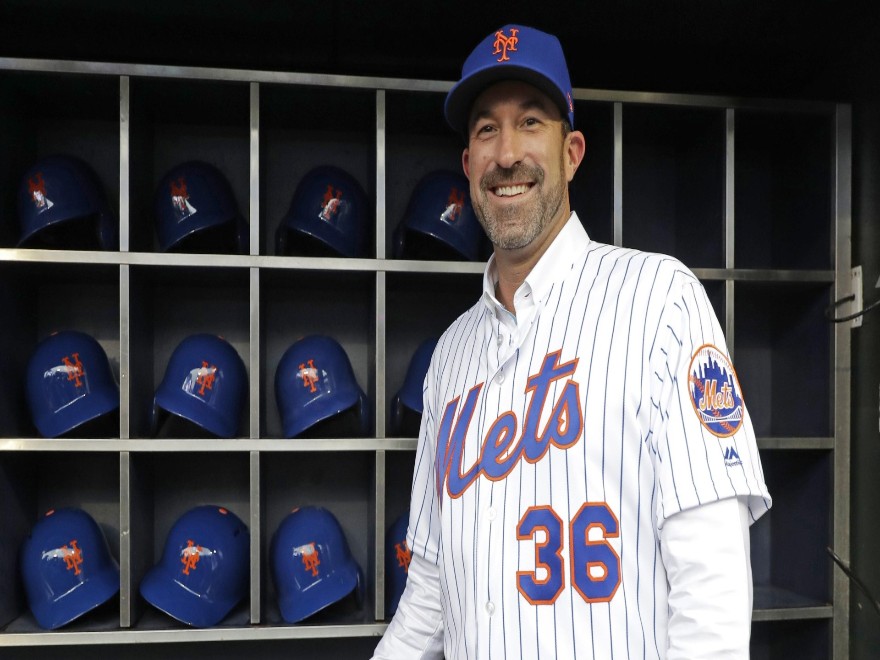When the Mets open their 2018 campaign they’ll have a new voice in charge, Mickey Callaway.
After seven seasons, Terry Collins stepped down as manager and took a role in the team’s front office. Collins, at 68 years old, took the Mets as far as he could. Under his leadership, the Mets reached the World Series in 2015. A year later, they returned to the playoffs as a wild card team.
But change is inevitable in life, and for the Mets it was time.
By the time the 2017 season came to an end it was clear this was a team in need of a change in leadership. The Mets finished 2017 with a 70-92 record, their first 90-loss season since 2009.
Collins was loyal to his players, sometimes to a fault, and he’s a baseball lifer. But his message was no longer getting across and only signaled it was time for the Mets to change it up.
Callaway represents this change, his success as pitching coach of the Cleveland Indians put him on the Mets’ radar.
Callaway Brings Plenty To The Table
According to Baseball Reference, the numbers speak volumes for what Callaway brings to the table. In 2017, Cleveland’s pitching staff ranked first among American League teams in wins (102), ERA (3.30), and complete games (7).
For at least the past five seasons, starting pitching has been the focal point for the Mets. But results have been mixed at best and there’s been more flash than substance.
Matt Harvey, Noah Syndergaard, Jacob deGrom, Zack Wheeler, and Steven Matz were supposed to be the staff that struck fear in opponents. But injuries have derailed this group and expectations have been lowered.
While the Mets were trying to ride their young arms, at times too much, Callaway was building his resume.
The Indians went to the World Series in 2016 and reached the playoffs again a year later. Callaway helped Corey Kluber to a Cy Young award in 2014.
At 42 years old, youth instantly makes Callaway a magnet for the younger players in the Mets’ clubhouse while re-energizing the veterans.

Mets manager Mickey Callaway (Image: Kathy Willens / AP)
Callaway Must Do More With Less
This will be the first managerial job for Callaway, his ability to hold an entire team, not just the pitching staff, accountable throughout the season should be watched closely.
The fact the Mets are strapped for cash should also bear watching. While the crosstown rival Yankees continue to be the team that makes big splashes with their checkbook, the Mets currently are a big-market team in the kiddie pool when it comes to finances.
Tyler Kepner, in his column for the New York Times, touched on how this likely won’t rattle Callaway and his approach.
“Not that it unsettles Callaway,” Kepner wrote. “He spent the last five seasons as the pitching coach for the Cleveland Indians, who have won big with modest payrolls.”
Callaway’s ability to tap into the talent already on the roster will be key because, with the exception of outfielder Jay Bruce returning to the team, there doesn’t appear to be much else on the way anytime soon.
The Mets have plenty of question marks heading into the 2018 season. But the hiring of Callaway signals a change in direction at a point they need it the most.
